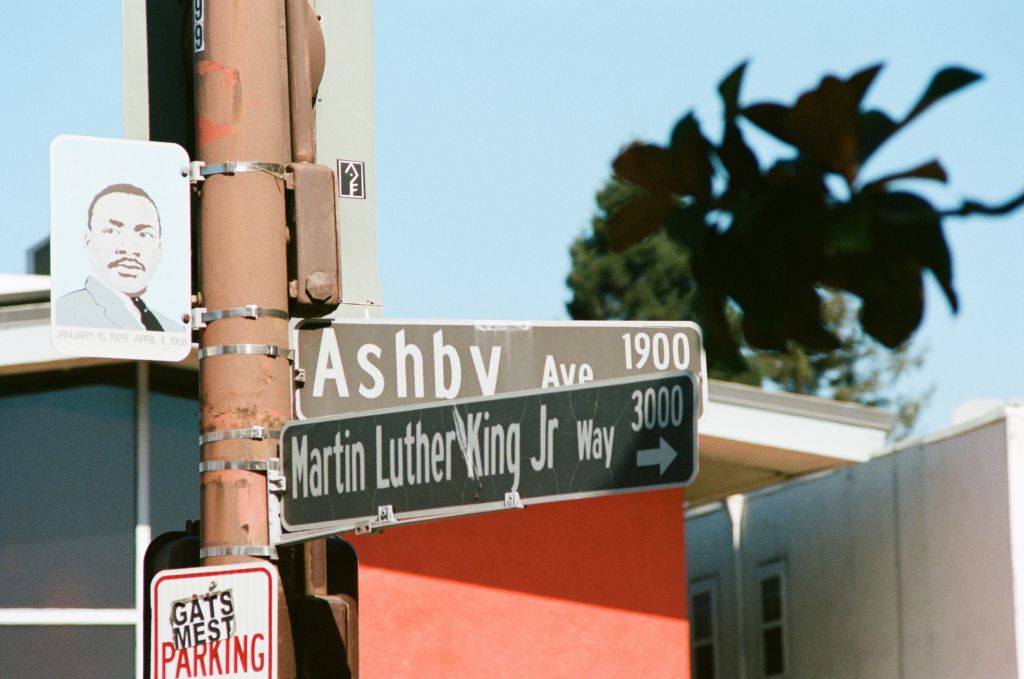
The Martin Luther King Jr. federal holiday is always on the third Monday in January, but many Americans see the civil rights leader’s name year-round on street corners.
There are more than 1,000 streets named after Martin Luther King Jr. around the world, according to estimates by Derek Alderman, a professor of Geography at the University of Tennessee in Knoxville. According to his 2018 article for The Conversation, he reported that there are at least 955 streets named after King in the U.S. in 41 states, plus the District of Columbia and Puerto Rico. He has counted as many as 128 Martin Luther King Jr. thoroughfares in Georgia and found just one example in Wyoming and Alaska.
Streets increasingly started being named for King after his assassination in 1968, and even more examples could be seen after the establishment of the Martin Luther King Jr. federal holiday in 1983. Alderman believes Chicago may be the first city to name a street named after the activist. In naming South Park Way after King—a road that runs through the predominantly Black South Side of Chicago—Mayor Richard Daley was trying to bolster the city’s reputation and perhaps court Black voters in the run-up to the 1968 Democratic National Convention, according to American Pharaoh by Adam Cohen and Elizabeth Taylor.
While researching this topic over the last 25 years, Alderman found that streets named after King tend to be in cities where Black Americans make up at least a third of the population. These thoroughfares tend to be home to churches, government offices, schools, beauty parlors, and barber shops—spots ripe for community organizing and mutual aid. “Martin Luther King drives, boulevards, and avenues are often important centers of African American identity, activity, and community,” Alderman wrote in a 2014 Social Education article co-authored by Jerry Mitchell.
While in some cities there are major roads named after King—like Austin, Albuquerque, and Tampa—Alderman found many examples on smaller streets confined to majority African American neighborhoods. Occasionally, Alderman notes, some white business owners have voiced concerns about King streets stigmatizing the area. Alderman cites one early 1980s example of a white real estate developer in Chattanooga, Tenn., fearing that he wouldn’t be able to rent office space in a building on a street named after King because it would create “racial overtones.”
Overall, naming streets after King can not only start conversations about whether the activist’s dreams are realized today, but also solidify his place in the pantheon of American leaders. As Alderman put it in the 2014 journal article, “The commemoration of Martin Luther King Jr. through street (re)naming is part of a larger movement to redress the exclusion of African American experiences and achievements from the national historical consciousness.”
More Must-Reads from TIME
- Cybersecurity Experts Are Sounding the Alarm on DOGE
- Meet the 2025 Women of the Year
- The Harsh Truth About Disability Inclusion
- Why Do More Young Adults Have Cancer?
- Colman Domingo Leads With Radical Love
- How to Get Better at Doing Things Alone
- Michelle Zauner Stares Down the Darkness
Write to Olivia B. Waxman at olivia.waxman@time.com